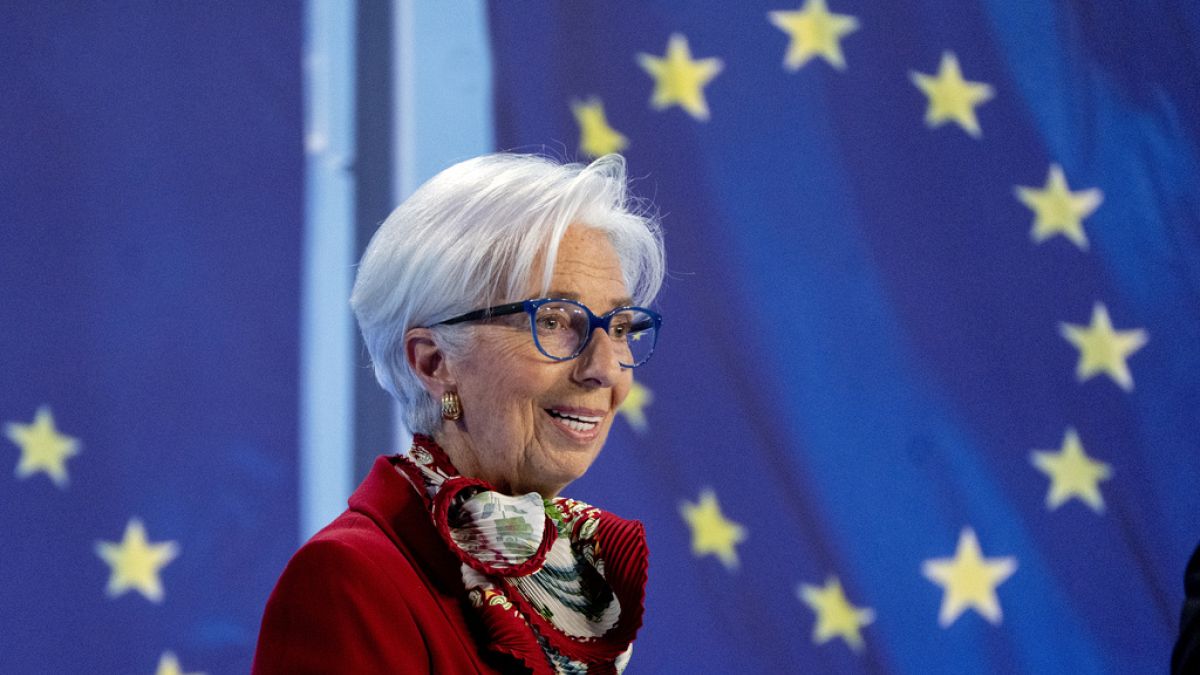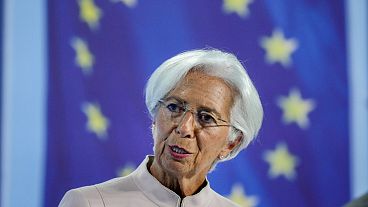The decision raises the ECB’s benchmark deposit rate to 4%, up drastically from minus 0.5% just a little more than a year ago and the highest since the euro was established in 1999.
The European Central Bank (ECB) piled on a 10th straight interest rate increase Thursday, pressing forward in its fight against stubbornly high inflation that has been plaguing consumers even as worries grow that higher borrowing costs could help push the economy into recession.
The increase of a quarter-percentage point comes as central banks around the world, including the US Federal Reserve, try to judge how much anti-inflation medicine is too much — and what’s the right point to halt their swift series of rates before the economy tips into a downturn and people lose their jobs.
The decision comes as the ECB, US Federal Reserve and other major central banks are nearing the end of their swift series of rate hikes aimed at squelching inflation — and hoping the damage to economic growth from higher borrowing costs is not too extensive.
ECB President Christine Lagarde said the latest rate decision would be made based on available data, a switch from the last nine meetings when rate hikes were signalled ahead of time.
Annual inflation of 5.3% in the 20 countries that use the euro currency is still well above the bank's target of 2%, robbing consumers of purchasing power and contributing to economic stagnation that has kept growth above zero this year.
However, there is a growing awareness that higher borrowing costs are weighing on decisions by consumers and businesses to invest and spend and are becoming a burden on the economy.
Ahead of Thursday's rate hike, Marco Valli, chief European economist at UniCredit Bank in Milan, said he expected the raise because underlying inflation is too high to satisfy many members of the bank's 26-person governing council. Underlying, or “core” inflation — which excludes volatile food and fuel prices is still too high at 5.3% to instil confidence that price increases are safely headed downward.
But Valli added that it was “a very close call.”
Shrinking economic activity
Recent signs have been downbeat. The major European economies — Germany, France, Spain and Italy — saw shrinking activity in August in the services sector even at the tail end of a strong tourism summer in Spain and Italy, according to S&P Global's surveys of purchasing managers. The services category includes hotel stays, haircuts, car repairs and medical treatment.
That comes on top of a slowdown in global manufacturing that is hitting Germany, Europe's biggest economy, particularly hard.
The economic picture is unusual and does not resemble a typical recession because unemployment is at a record low of 6.4%.
Another factor weighing on the outlook is the euro falling in value against the strengthening US dollar as investors take the view that economic weakness will hit Europe and China. They are betting that the US Federal Reserve might manage a “soft landing” by finishing its rate hikes without pushing the economy into a downturn.
The Fed made its 11th rate increase in July, bringing its key rate to the highest level in 22 years after pausing in June. Economists and investors generally expect the Fed to skip a rate hike at its meeting next week, but it could increase again in November.
Inflation is lower in the US at 3.7% compared to Europe despite an upward bump from gasoline prices in August.
Central banks around the world have been hiking rates to stamp out inflation that broke out after the sharp economic rebound from the COVID-19 pandemic strained supply chains and Russia's invasion of Ukraine sent food and energy prices higher.
The Bank of England raised rates for the 14th straight time last month, and markets think it's more likely than not that the central bank would hike again when it meets next week.
Interest rates combat inflation by raising the cost of credit for consumer purchases, particularly houses, and for business investment in buildings and equipment. That cools off demand for goods and relieves upward pressure on prices. The flip side is that rate hikes can hurt economic growth if they're overdone.



